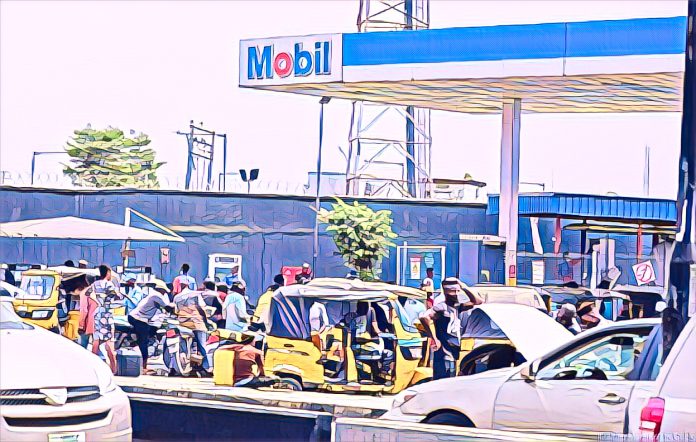Nigeria’s ongoing fuel shortage has now stretched into its sixth week, leaving drivers frustrated and causing long lines at gas stations. The Nigerian National Petroleum Company Limited (NNPC) has once again pointed to “distribution challenges” as the cause of the problem.
The shortage started in early July 2024, and it’s the third time this year that Nigeria has faced a fuel crisis. Initially, the NNPC blamed logistics issues, saying that bad weather had disrupted the transfer of fuel between ships, making it difficult to get petrol to where it was needed.
However, despite these explanations, the situation hasn’t improved. On Sunday, NNPC issued a brief statement expressing regret for the ongoing fuel supply problems, particularly in Lagos and the Federal Capital Territory (FCT). The company urged people not to panic-buy, assuring them that they were working with others to resolve the situation.
But on the ground, the reality is tough. In Abuja, long lines continue at the few gas stations that are open. Outside the city, things are even worse, with some independent marketers hiking their prices to as much as N950 per liter—up from N720 before the shortage began.
Chinedu Ukadike, the spokesperson for the Independent Petroleum Marketers Association of Nigeria (IPMAN), explained that independent marketers have not received enough fuel recently. He suggested that this might be related to the anticipated supply of petrol from the new Dangote Refinery. According to Ukadike, fuel suppliers are being cautious, fearing they might suffer losses if the price drops once the Dangote Refinery begins operations.
As a result, the supply of petrol has become unreliable, and many stations are struggling to get the fuel they need to serve customers. For now, drivers across Nigeria can only hope that the situation will improve soon as the country grapples with this ongoing crisis.



